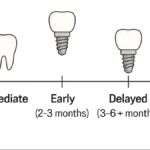Employees who require time off work to recuperate from severe medical illnesses or to care for family members with such conditions are legally entitled to medical leave. Workers get protection from unjust treatment related to their leave by laws like the Family and Medical Leave Act (FMLA). Employer Retaliationis still possible, though.
Whether subtle or obvious, it can have a big impact on a worker’s career and well-being. Employees can identify and address retaliation before it causes more harm if they know what it looks like. Orange County is a place in California. Employees in Orange County, where firms of all kinds operate in a variety of industries, are becoming more aware of the legal safeguards available to them.
Working with a skilled FMLA attorney in Orange County can make a big difference in keeping employers accountable. These legal specialists can assist in identifying retaliation, gathering evidence, and taking appropriate measures to address the harm caused.
Reduction in Hours or Pay
An abrupt reduction in work hours or compensation after a medical leave is one of the most typical indicators of retaliation. An employee may discover that their hourly pay has been dropped without prior negotiation or that their weekly schedule has been shortened without a clear explanation.
Although such moves may be justified as business decisions, they may indicate retaliation if they take place shortly after protected leave and without consistent company-wide adjustments.
Demotion or Loss of Responsibilities
Another instance would be to get demoted or deprived of significant duties upon a return from medical leave. Even when performance appraisals prior to the leave were favorable, this can still occur. A demotion can harm future professional advancement in addition to pay. It communicates that the employer sees the leave as an issue rather than a privilege.
Negative Performance Reviews Without Basis
Performance reviews may be used as a means of retaliation. Despite having a solid record, an employee may return from medical absence and receive an unexpectedly negative review. Feedback can occasionally be ambiguous or unrelated to the worker’s real performance. Such evaluations may be used to support future termination or disciplinary action.
Exclusion from Projects or Opportunities
Some employees discover that they are disqualified from significant initiatives or possibilities for promotion that they would typically be considered for after taking a medical absence. This exclusion might hinder career advancement and foster a feeling of loneliness at work. If the lost opportunities are connected to commissions or bonuses, it could affect an employee’s earning potential.
Hostile Work Environment
Employer Retaliation may also involve establishing an environment at work that hinders the employee’s ability to perform their job duties. Frequent criticism, public disapproval, or shifts in team dynamics that make the employee feel targeted are a few examples. A hostile workplace may force an employee to leave, which may be considered a constructive discharge.
Sudden Disciplinary Actions
Unwarranted warnings, write-ups, or investigations following medical leave might be a significant indication of retaliation. These measures can be used to establish a paper trail against an employee, allowing an employer to justify termination later.
Conclusion
Identifying Employer Retaliation after a medical absence helps employees protect their rights and careers. The key takeaways from the common examples of employer retaliation after medical leave include-
- Reduced hours, demotions, or harsh treatment may signal retaliation.
- Retaliation can affect pay, promotions, and job satisfaction.
- Recognizing unfair treatment promptly strengthens your case.
- Professional support ensures proper handling of retaliation claims.
- Taking action safeguards both your rights and career growth.







